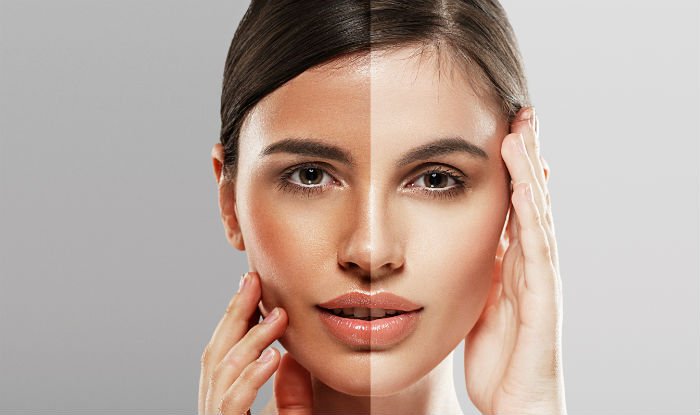Skin lightening, also known as skin whitening or skin bleaching, refers to the process of using products or treatments to lighten the skin tone or reduce the appearance of hyperpigmentation. While this practice is common in various cultures for aesthetic reasons, it's essential to approach it with caution and prioritize skin health and safety. These products typically contain ingredients such as hydroquinone, kojic acid, arbutin, niacinamide (vitamin B3), licorice extract, and vitamin C. They work by inhibiting melanin production or promoting the shedding of melanin-rich skin cells. Chemical peels use acids like glycolic acid, salicylic acid, or trichloroacetic acid (TCA) to exfoliate the skin and reduce pigmentation. Superficial peels are available over-the-counter, while deeper peels require professional application. Seek advice from a qualified dermatologist or skincare professional who can assess your skin type, concerns, and recommend appropriate treatments.

Skin Lightening
Skin lightening treatments can be effective for reducing hyperpigmentation and achieving a more even skin tone. However, it’s essential to approach these treatments with caution, prioritize skin health and safety, and seek guidance from qualified professionals. Emphasizing sun protection and adopting a holistic approach to skincare can help maintain healthy and radiant skin over the long term. The desire for lighter skin is often influenced by cultural perceptions of beauty, which can have social and psychological implications. It’s important to consider the motivations behind skin lightening and prioritize overall skin health.